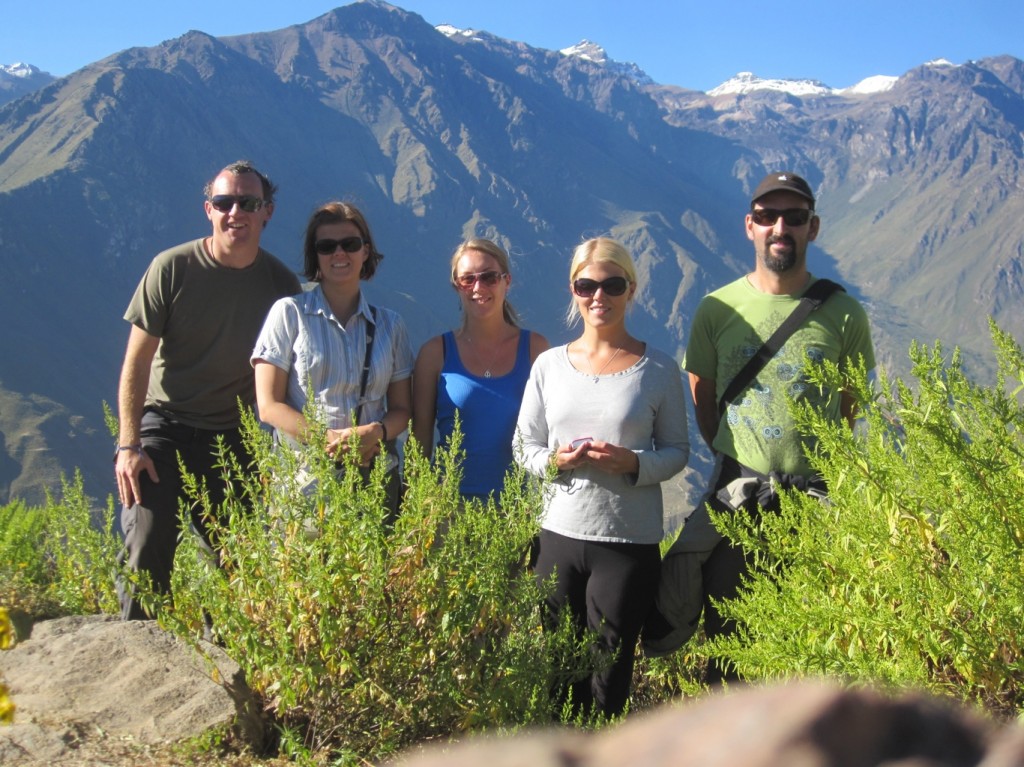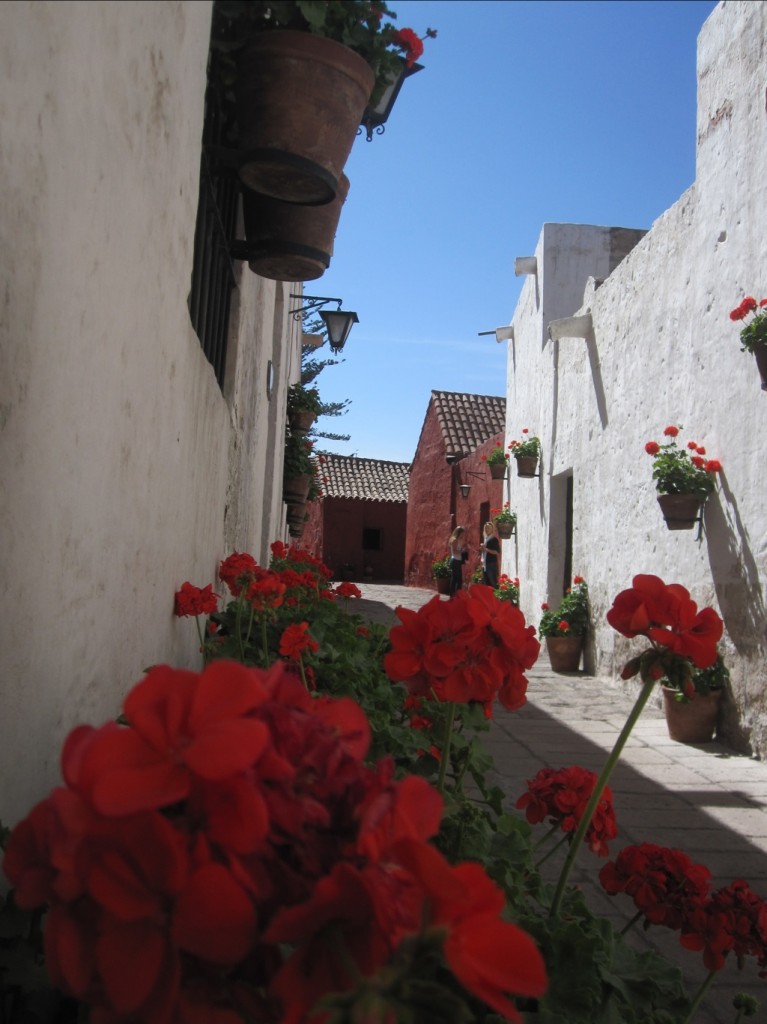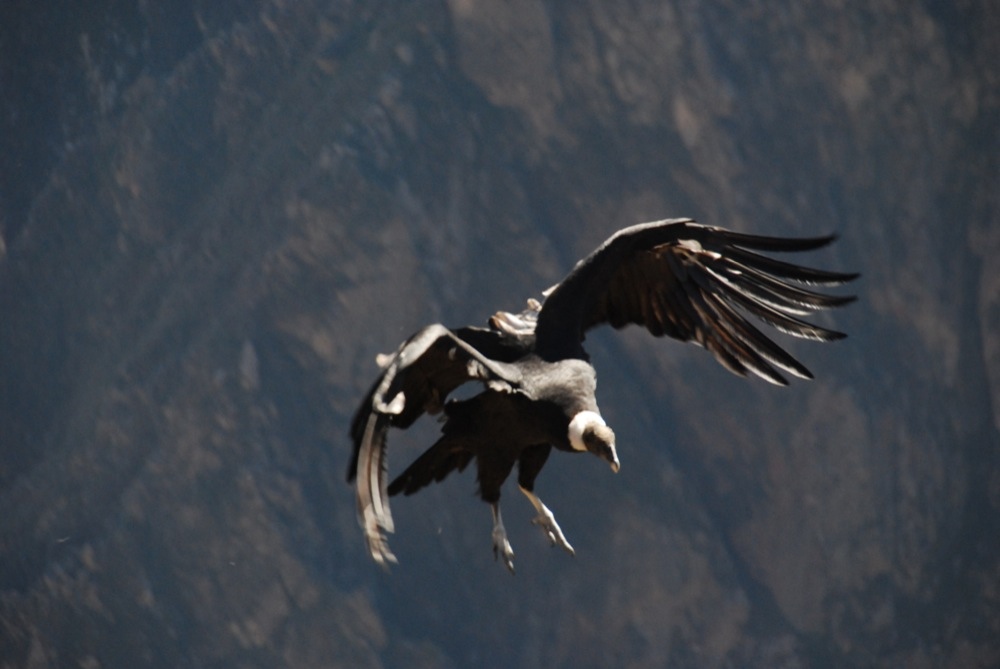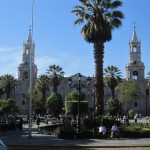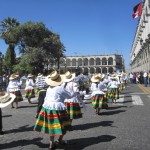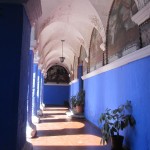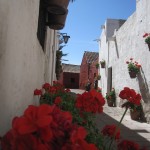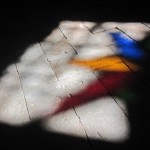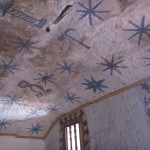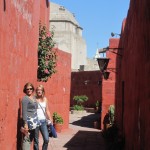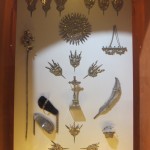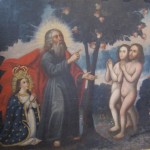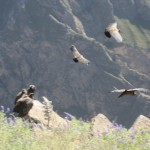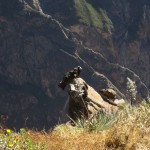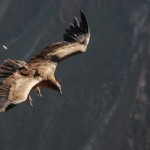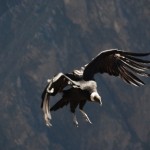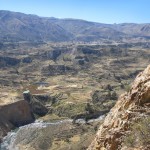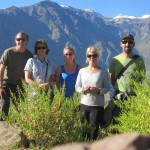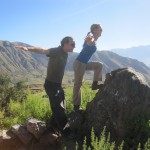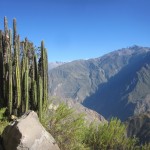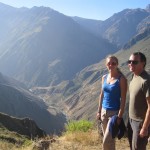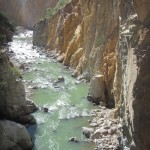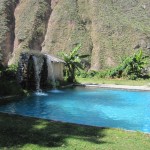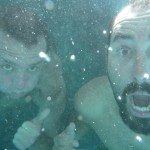Every now and then we end up in a place that isn’t remotely like the South America we expected. It’s happened twice this week, in Arequipa and then the Colca Canyon..
Locals are fond of saying that “When the moon separated from the Earth, it forgot to take Arequipa”, which may be overstating it somewhat, but the place is pretty striking. Another legend that’s perhaps more believable is that the fourth Inca ruler was passing through the valley and became so enchanted that he shouted out to his guards ‘Ari, quipay’ – “let’s stay”, thus giving the city its name. I think we all let out a collective ‘wow’ when on the first night we turned into the European-style central square, lined on three sides with arched buildings and the other with a huge illuminated cathedral – this wasn’t what we expected of Peru!
The city sits in a valley beneath the picture-postcard Misti volcano and Chachani (which is apparently one of the easiest 6000m summits in Peru, but we decided against it this time!), and despite its sprawling size, the centre manages to feel tranquil and tourist-friendly.
The highlight of our time there was the Monasterio de Santa Catalina, a gorgeous 16th century convent with fortress-like walls occupying a whole city block. The place is labyrinthine inside, and you can wander round all the old nuns’ cells (complete with attached kitchens), and stumble into lane after lane of photogenic colours and crumbling beauty. We were entertained to hear that the Convent was known as a bit of a party house during its time; the rich Spanish daughters within confined to a life of religious servitude opted instead to continue their lifestyle from outside, with between one and four (black) slaves apiece, holding regular parties, and even inviting musicians from the city to perform for them – until the Pope found out and imposed a strict discipline some three centuries later!
Our second surprise was a couple of nights ago, when eating at our hostel in Cabanaconde at the Colca Canyon. Not only did our drinks arrive before we’d finished our food (actually before the food even arrived!), but they were out of stock of one of the pizza toppings and came over to apologise and ask what we wanted as a replacement! Pachamama Hostel – highly recommended!
The Colca Canyon is 3191m at its deepest, making it twice the size of the Grand Canyon, and the second-deepest in the world (the deepest is 100m more, and just next door, but much harder to reach). There’s a viewpoint at the top that’s famous for Condor spotting, and it didn’t disappoint – in the hour or so we were there, we saw about 10 condors, perched on rocks just below us, and then soaring into the blue sky above. At one point, one flew only a couple of metres above us – with wingspans up to 3m, it’s a scary sight when they block out the sun above!
(Other) Simon and I spent a tough day walking down the canyon side to an oasis at the bottom, and then after a swim and lunch, back up again in the hot afternoon sun. It was satisfying if entirely exhausting, and right at the bottom we had a revelation – at just 2100m above sea level, it was the lowest we’d been in 4 weeks! As you’re walking down, you can see the thousands of distinctive pre-Inca terraces that mark out the contours of the hillsides in furry green vegetation, and when you look carefully, tiny silver rectangles which when you get closer slowly turn into houses.
There are various isolated communities around here clinging to the sides of the mountains, only accessible on foot – and a hell of a trek down and back up the canyon at that, since they’re on the other side. Much like we experienced in Langtang in Nepal, one can only imagine the difficulties people here have accessing basic amenities like healthcare when it’s a multi-day hike to the nearest road. We as tourists may take (false) pride in having ‘done the canyon’ in a day, but it’s a different matter when it’s part of daily life.
Simon
- The Plaza de Armas
- Parade in Arequipa city centre
- Blue arches at the convent
- Flowers at the convent
- Sunlight shining through glass at the monastery
- Stars and tools for flagellation on a monastery ceiling
- Mia and Laura in the Convent
- From the convent – everything here is made from pure silver. Including sandals!
- From the art gallery at the convent, with a slightly different perspective on a traditional story. Is that Mary alongside God in the Garden of Eden?
- Condors in the Canyon
- More condors
- A condor up close – amazing photo thanks to Simon Barrow
- A condor coming in to land – amazing photo thanks to Simon Barrow
- Iconic pre-Inca terracing as far as the eye can see
- The group of us at the canyon
- Laura and I pretending to be condors
- Cactus at the canyon
- The view over the canyon
- It actually looks like a canyon here!
- Bliss!
- Basking in the cool water – photo thanks to Simon Barrow

